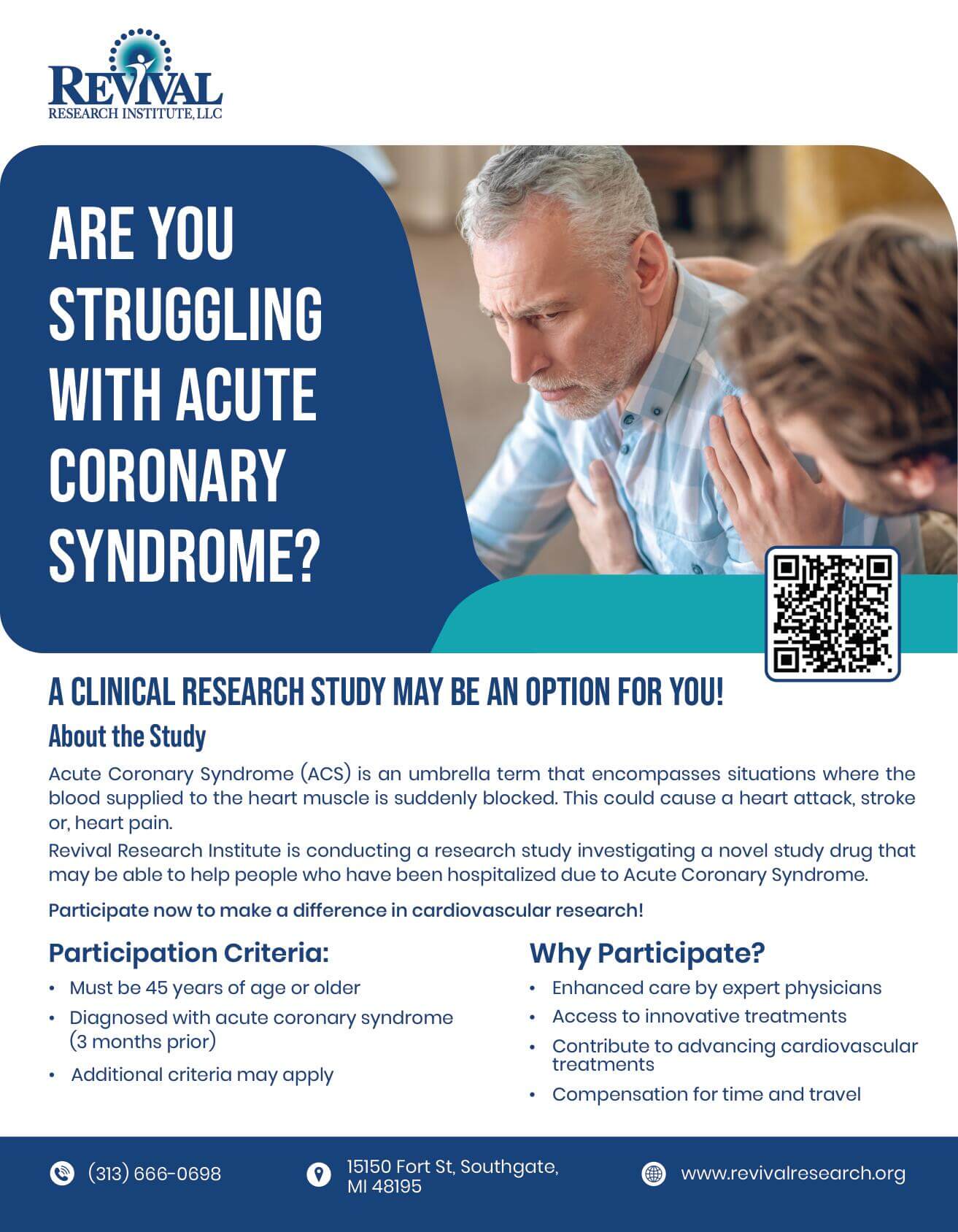You might qualify for the Acute Coronary Syndrome (ACS) Research Study!
Acute Coronary syndrome (ACS) is an acute manifestation of coronary heart disease and one of the major causes of death for men and women in the United States. This often leads to a heart attack, stroke, or an unstable angina (heart pain).
Despite advancements in medicine and treatments, there is still an unmet need for effective treatments that can reduce the risk of fatal and non-fatal myocardial infarction (MI).
At Revival Research Institute, we are conducting a clinical research study evaluating the long-term safety profile of an investigational drug in people specifically with coronary heart disease.
You may be eligible for the Clinical Research Study if you:
- Are 45 years of age or above, male or female both
- Have a history of recent acute coronary syndrome
- Have a history of ECG abnormalities without biomarkers
Additional criteria may apply
Revival Research Institute is one of the many sites that is working in collaboration with the sponsor to conduct this groundbreaking research study. We’re working to evaluate how a potential investigative acute coronary syndrome treatment may be able to help reduce the risk of life-threatening heart-related complications. This Acute Coronary Syndrome Research Study will help Cardiologists and doctors gain a better understanding of the condition and observe whether the investigational medication helps to reduce fatal or non-fatal myocardial infarction.
*To participate in the research study, simply fill the form and someone from the research staff will get back to you shortly with a phone call. Your medical history will be collected by the research personnel. However, your information will not be disclosed to anyone outside of the organization, as stated in our Privacy Policy.
**Participating in the research study is free of cost to you and your insurance. You will not be charged in any capacity and will instead be provided with a stipend for every visit you make to the site, should you decide to participate in the study and if you qualify.



